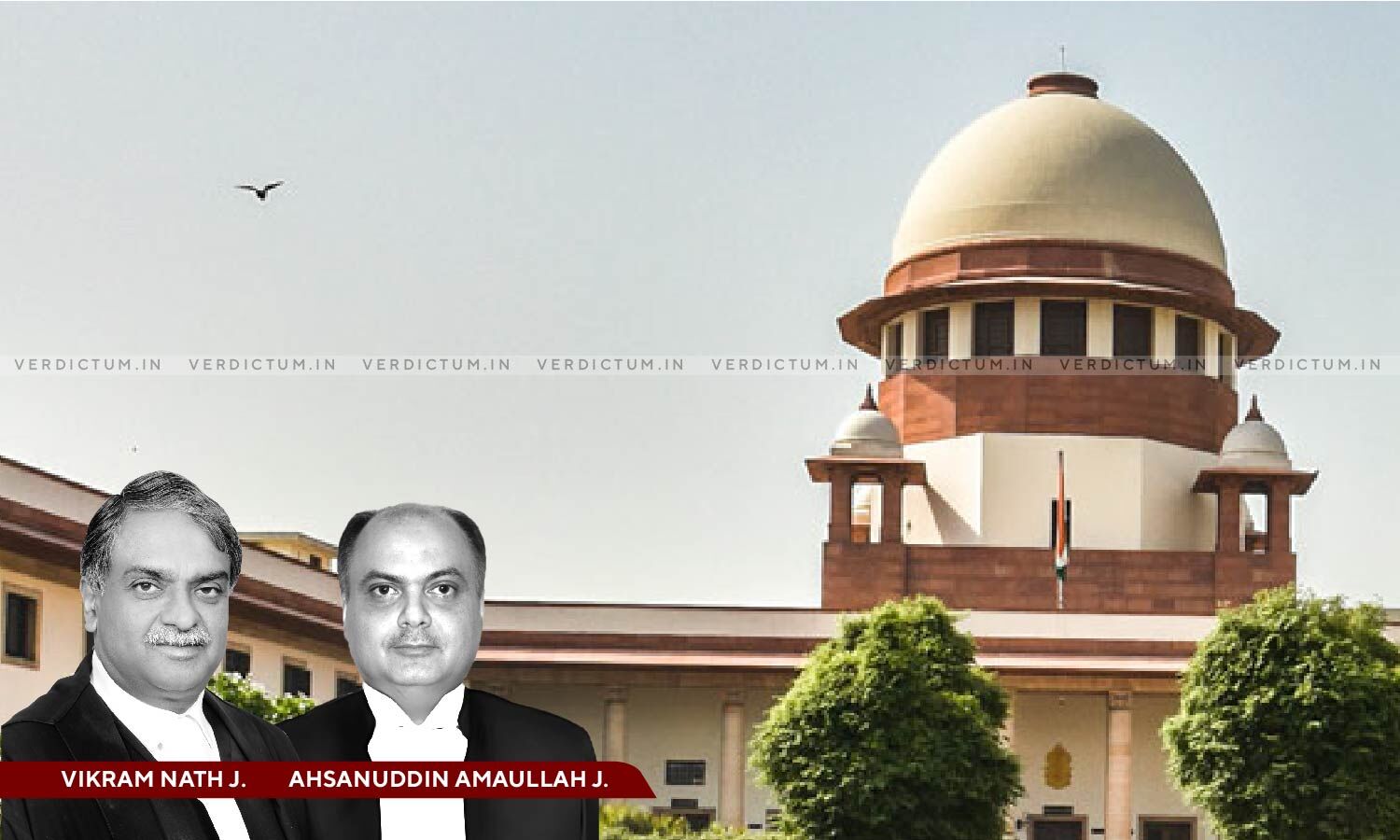Once Power Of Attorney Is Found To Be Invalid, Any Further Action Taken Pursuant To It Can’t Be Held As Valid: SC
The Supreme Court has held that the Power of Attorney, having been found to be invalid, any further action taken pursuant to it, cannot be held as valid.
The Court was deciding an appeal against the judgment passed by the Madras High Court whereby a second appeal was allowed after setting aside the judgment of the First Appellate Court and the Trial Court’s order was restored.
The two-Judge Bench comprising Justice Vikram Nath and Justice Ahsanuddin Amanullah observed, “… once the First Appellate Court, after appreciating and analysing the evidence on record came to the conclusion that the plea of non est factum was proved, the said finding, being a finding of fact, ought not to have been interfered by the High Court in Second Appeal. The Power of Attorney, having been found to be invalid, any further action taken pursuant to it, cannot also be held to be valid. Therefore, the judgments relied upon by the defendant respondents are of no assistance to them.”
The Bench said that the First Appellate Court had appreciated and analysed the evidence on record, both oral and documentary, to record a finding that plea of non est factum was proved.
Senior Advocate Jayanth Muth Raj and Advocate Nishe Rajen Shonkar represented the appellants while Advocate K.K. Mani represented the respondents.
Facts of the Case -
A dispute arose with regard to a land in the village of Tamil Nadu which originally belonged to the first plaintiff i.e., Natchimuthu who had executed a gift deed in favour of his first wife in respect of 50 cents of land. The suit was filed jointly by the said husband and wife. They, being illiterate and having no other source of income, requested the deceased (respondent) to develop the land into several plots after obtaining necessary permission from the Government officials so that the same can be sold to generate revenue.
Five cents of land as consideration was offered to the deceased as a consideration and a Power of Attorney was executed in favour of him by the plaintiffs. The deed was registered but according to the plaintiffs, the deceased took advantage of their illiteracy and simplicity and additionally got two more clauses added to the deed. Thereafter, the plaintiffs came to know about the two sale deeds executed by the deceased in favour of his father and brother. The matter went to Trial Court and it dismissed the plea of the plaintiffs and then the First Appellate Court allowed their appeal but the High Court set aside the said decision and restored the Trial Court’s order. Hence, the matter was before the Apex Court.
The Supreme Court in view of the facts and circumstances of the case noted, “The market value as alleged would be more than Rs.3 Lakhs at the relevant time. The guideline value was estimated to be Rs.22,500/- whereas the transfer was affected for a consideration shown as Rs.12,000/-. The defendant failed to explain this conduct of his of being in such a haste to transfer the property on the same day to his own father and brother. The deficiency in stamp duty due to under valuation was also not cleared as the document had been impounded by the Registering Authority and it was after nine to eleven years that the deeds were got released after paying the stamp duty, as per the value determined by the Assessing Authority.”
The Court further noted that the defendants were waiting for the outcome of the suit and in case if they were to lose, they would not like to invest or spend any further amount on stamp duty so they chose not to pay till almost the Trial Court dismissed the suit.
“There is no documentary evidence as such (receipt or any such thing) signed by the plaintiffs of having received any consideration. Thus, possession cannot be said to have been validly transferred to the defendant and the lawful possession would still remain with the plaintiff”, observed the Court.
The Court said that the High Court, while exercising its power under Section 100 of the Code of Civil Procedure, 1908, exceeded its jurisdiction in disturbing the pure findings of fact and that too on incorrect appreciation and reading of the pleadings.
“Non-framing of an issue, which is otherwise covered in a broader issue and for which there was sufficient pleading and evidence, the suit could not have been dismissed on that ground”, added the Court.
Accordingly, the Apex Court allowed the appeal and set aside the judgment of the High Court.
Cause Title- Ramathal & Ors. v. K. Rajamani (Dead) through LRS & Anr. (Neutral Citation: 2023 INSC 737)












